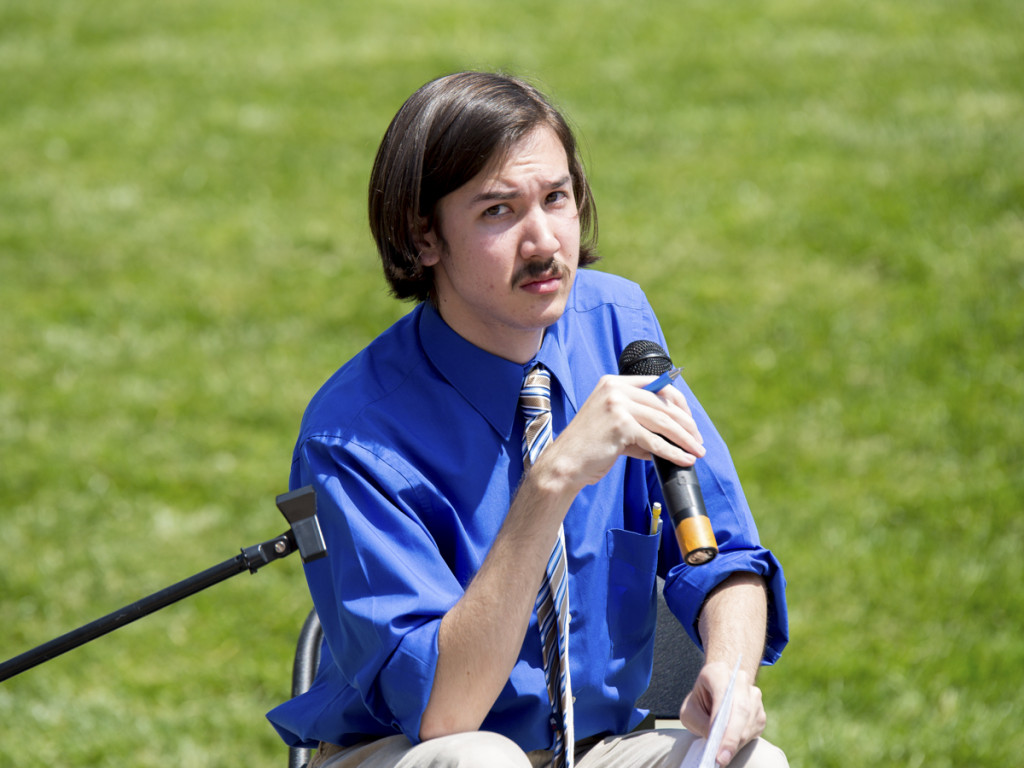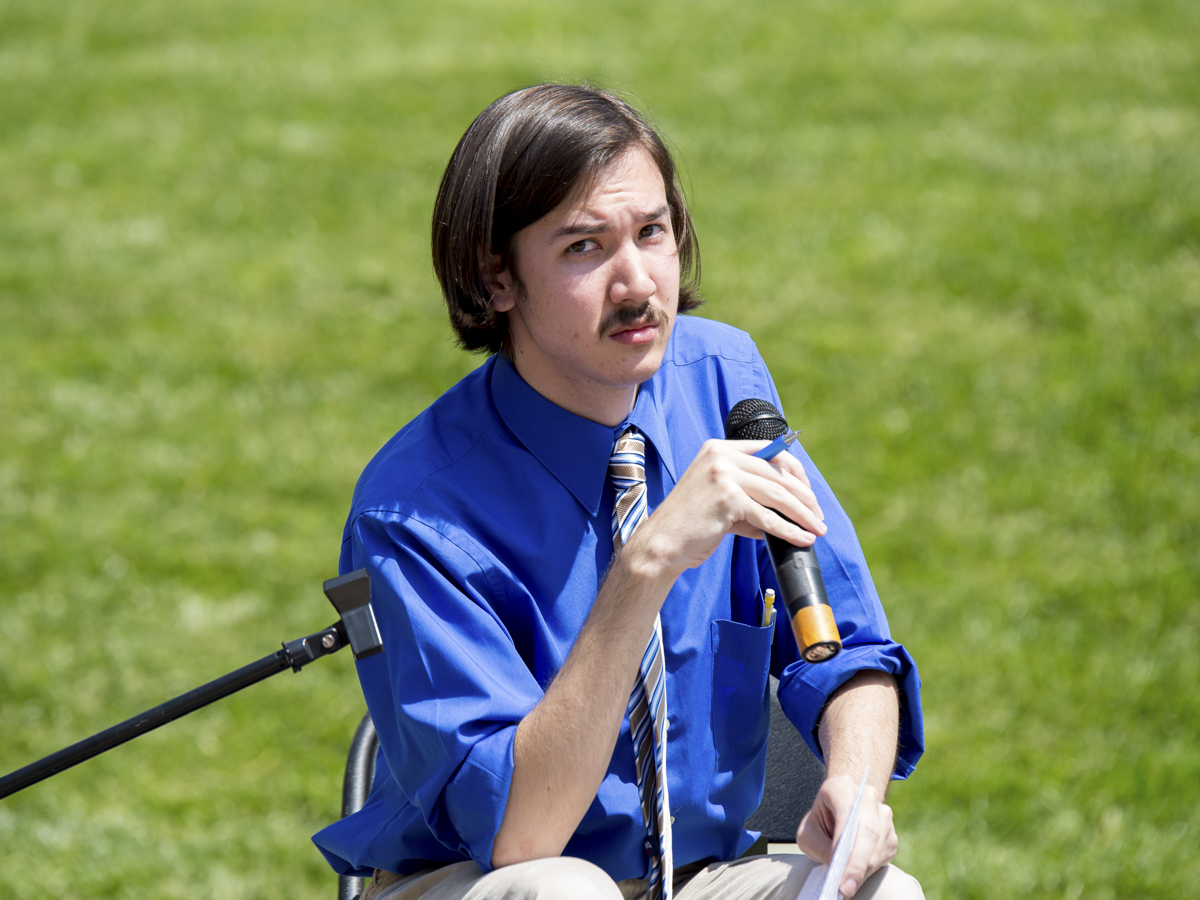
When I was younger, I’ll be honest — I hated writing. The experience was like pulling teeth from a shark. Level of discomfort: high. Potential for being skewered into a human shish kabob: very, very high. In my later high school days, I came to appreciate the technique of writing, but even then, I never considered it fun.
So I’m still not exactly sure what drove me to take on my first article at the Highlander — a piece on the then-brand-new UCR School of Medicine. I was excited to be writing about something big that was happening on campus, but at that point, I couldn’t care less about the school itself. I was a political science major. I wasn’t going to medical school. In fact, the whole idea of seeing, let alone touching, someone’s internal organs made me want to bow to the porcelain god.
But something funny happened: I started caring. When I finally worked up the nerve to begin my first interview (it took me more than 15 minutes and at least one bottle of water), I couldn’t help but get excited halfway through. It wasn’t just that the school would be the first new medical school at a UC in almost half a century or that it would help fulfill the dire need for primary care physicians in Riverside. It was the sheer level of giddiness and enthusiasm for the school on the part of everybody who was toiling for so long to ensure it received accreditation. It was infectious.
Before long, I was infected too. I wanted to tell other people about this cool thing that was happening, about this success that people were trying to achieve. So I did that the best way I knew how: I started writing.
Two weeks later, when the school finally was accredited, I barraged its dean, Richard Olds, with questions. Where did the money end up coming from? Why did he think this was important? How did he feel? He answered all of my questions with a jovial grin until his assistant had to interject that he was late for a staff celebration. I walked down the hall, reviewing my notes, when I started to hear shouts of joy, frenzied clapping, hollers, shouts of congratulations, the popping of corks. I couldn’t help but break into a smile.
When I got home and sat down to write my article that week, I wasn’t just putting words to paper. I realized much later that I wasn’t even writing about the school of medicine. I was writing a story. The main characters were the people trying to make a school of medicine a reality. Around them, countless supporting characters, both students and community members, all sharing that same dream. The conflict: whether the school would be accredited amid a lack of funding. And then, just when it seemed like hope was lost when the California state senate withdrew $15 million, the community banded together to keep the dream afloat. The school was accredited. Conflict, climax, resolution, happy ending. Some could even call it a miracle.
And the best part? It wasn’t a work of fiction. It was all real.
The School of Medicine was just one story — there have been countless other miracles at UCR. Yet, if you just looked at somebody walking past the Bell Tower, or maybe spoke to them in passing, you would never know. You would never know that they built the largest solar array in the UC. You would never know that a cancer survivor made life for children with cancer a little less harsh, or that students with cancer came together to forever defeat the disease. You would never know that a civil rights activist inspired students with her story, artists inspired students with their voices and comedians inspired students with their jokes.
Every day, real people do really incredible things. They don’t even have to be immense undertakings that build up a monument or tear down a wall. Sometimes, the simple act of living while in poverty or winning the last game of the season is enough. That’s because, behind the softballs and solar panels, there is a fundamental story at their core. It’s a story that’s been told since before the founding of the United States, the birth of civilization or the development of writing.
It is the story of humanity.
It is the story of humans, banding together to achieve a common goal. Or striking off alone, determined to make change when nobody else had faith in them. Or even fumbling, tripping and perhaps failing from time to time. These stories happen every day of our lives, and not just with fictional characters or famous celebrities. It is constantly unfolding and changing, and we add new chapters with every grain of sand that runs through the hourglass. Every day, there are people trying, succeeding, struggling, overcoming, fighting.
I am inspired by them, and the stories they have to share. I am humbled by them, and the adversities they have overcome. I learn from them, and the experiences that are uniquely their own. When I write, I try to channel their stories and present them to a wider public, in the hope that others, too, can take something away from what they have to say. Maybe I can change somebody’s perspective, or teach them something new, or encourage them to take action. Then, maybe I can write about them, and share their story too.
If even one person reads the stories I’ve had the honor and privilege to tell during my time at the Highlander, I am more than grateful. And if someone decides to research income inequality, volunteer to eradicate cancer or think about starting a nonprofit, I’d be happy beyond words — which is saying something, since my job is to write for a living.
Everyone can contribute to the story we as a species are collectively writing in their own little ways. For me it was writing — but for others it could be speaking to your grandparents about their lives. Perhaps you’re more of an action-oriented person, and would rather start a charity to provide food for the homeless or become a politician to make better policy. Maybe your route is simply to donate blood every eight weeks. Whatever it is, those are your contributions to the story we are all writing.
I hated writing when I was younger because I didn’t know why I was doing it. What point is there to writing about my summer vacation? Nobody really cares. (And why should they? It’s honestly really boring.) I may not know what spurred me to start writing, but I certainly know why I kept doing it. I wanted to tell other people’s stories as we together pen the collective history of humanity. And well, if you’d like to get started by contributing a page or two, there’s always the Highlander.








